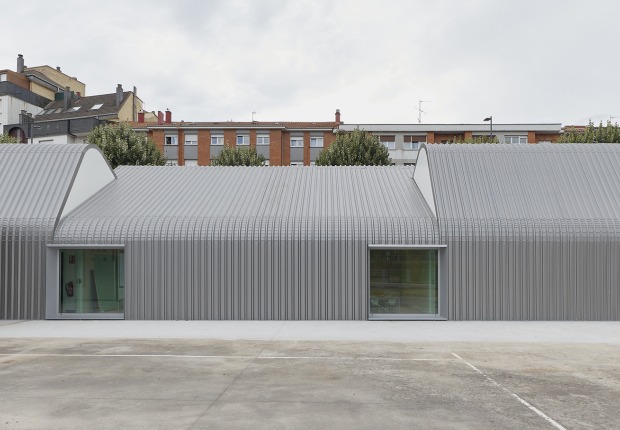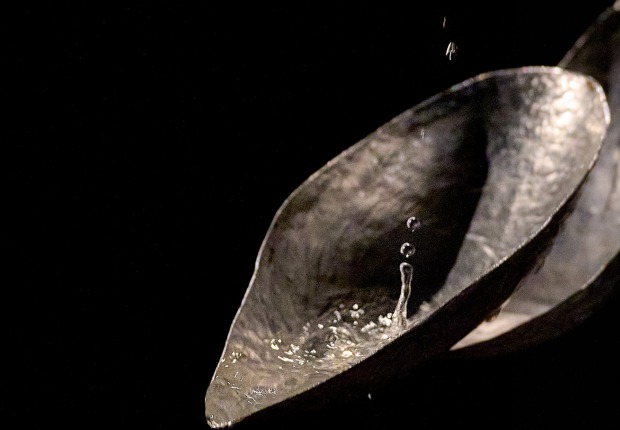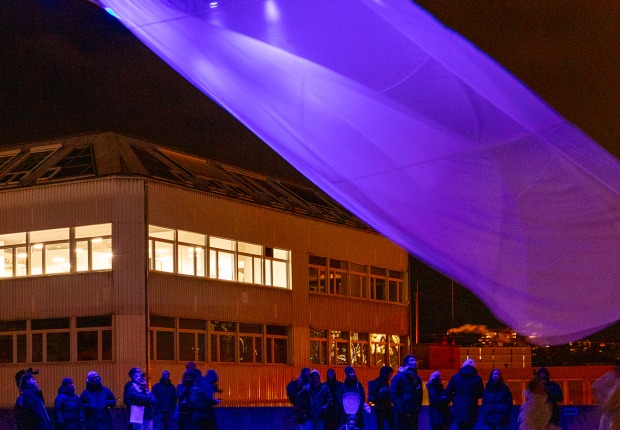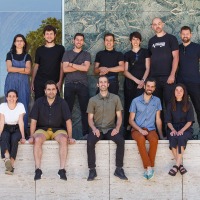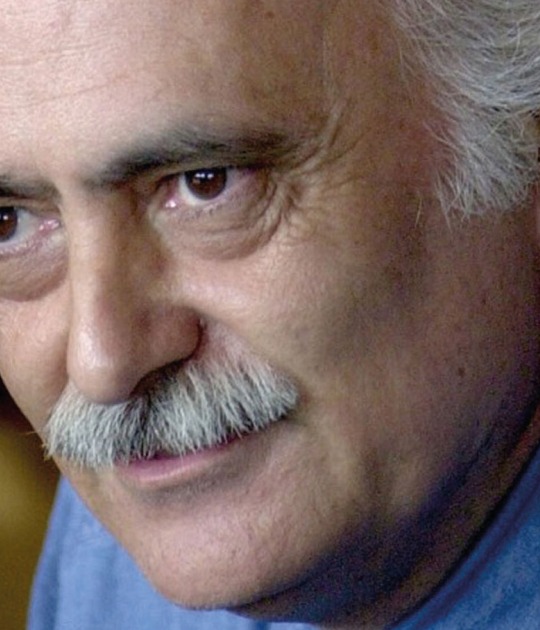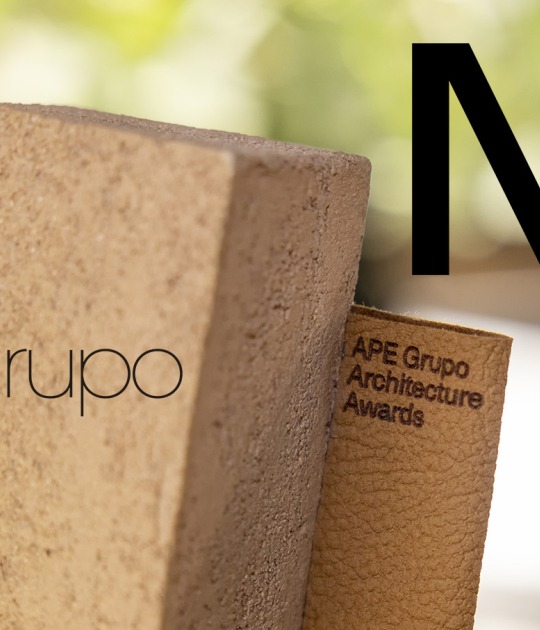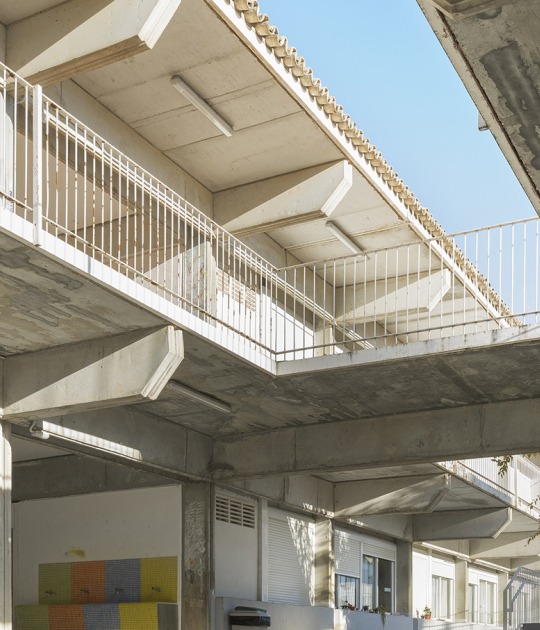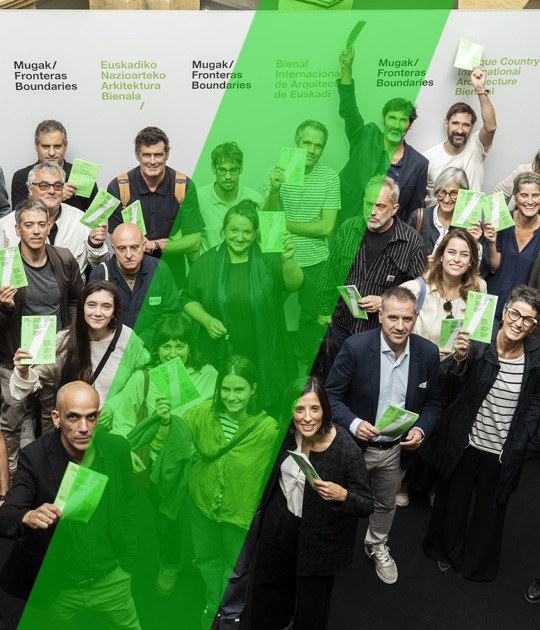The jury formed by Anne Lacaton (France), Kristiaan Borret, (Belgium); Emanuele Coccia (Italy), Fernanda Canales (Mexico) and Christian Hadaller (Germany), decided on the eighteen finalist candidates, highlighting the promotion of innovation, inclusion and environmental responsibility in the design of collective housing.

Transformation of Coop Wine Storage into Housing Building by Esch Sintzel Architekten. Photograph by Paola Corsini.
The conversion of the former Coop wine warehouse in Basel, Best Collective Housing Development in the renovation category
The project by Esch Sintzel Architekten, completed last year in the Swiss city of Basel, involved transforming an industrial building of the wine company Coop into a residential building.
In the transformation, the old concrete pillars of the industrial building become the protagonists. "They are the most striking elements of the structure and constitute an important starting point for the project." Its layout and materiality define the interior of the building and allow us to reduce the energy used in its construction and the reduction of waste.
In the renovation category, the conversion of the Felix Platter Hospital (Basel, Switzerland), by Müller Sigrist Architekten, has also been selected; Qville (Essen, Belgium), by B-architecten; Nekkersput (Ghent, Belgium), by DBLV architecten; La commune (Liège, Belgium), by he-architectes; social housing in Rua da Vitória (Oporto, Portugal), by MAVAA architects; phase 2 of the rehabilitation of Park Hill (Sheffield, United Kingdom), by the Mikhail Riches studio, with special mention; the renovation of a 1970s social housing complex (Trento, Italy), by Campomarzio+Studio Bombasaro; and SchloR – Schöner Leben ohne Raiffeisen (Vienna, Austria), by Gabu Heindl, Elena Mali, Lisa Schönböck, Hannah Niemand, Stana Marjanovic, Fabian Liszt, Petko Grablij, Maura Schmitt, Anne Altmeyer, Sebastian Christiansen and Lucas Bogunovic.

La Borda, cooperative housing by Lacol Arquitectura Cooperativa. Photograph by Lluc Miralles.
La Borda, Best Collective Housing Development in the new construction category
La Borda is a housing cooperative part of Barcelona's social housing stock. The Lacol team's project, completed in 2018, involves the construction of 28 homes in the tallest wood-frame building built in Spain to date.
The building has homes of different sizes and community spaces, enhancing common life around a central patio. In the planning process, the participation of future occupants organized as a cooperative was especially decisive.
Lacol applied a community model for La Borda, with five defining characteristics: "self-promotion, right of use, community life, sustainability and affordability." And the development of passive bioclimatic strategies was significant.
In the new construction category were La Chalmeta (Barcelona, Spain), by Vivas Arquitectos; Maierhof (Bludenz, Austria), from the feld72 studio; Ekko (Bordeaux, France), by Duncan Lewis); Spiegelfabrik (Fürth, Germany), by Verena von Beckerath and Tim Heide; Kuppe Estate (Horgen, Switzerland), by Esch Sintzel Architekten; A House For Artists (London, United Kingdom), by Apparata Architects; eight public housing rentals in Palma de Mallorca (Spain), developed and built by a team from the Balearic Housing Institute; and Zollhaus Kalkbreite (Zurich, Switzerland), by Enzmann Fischer Architekten.








